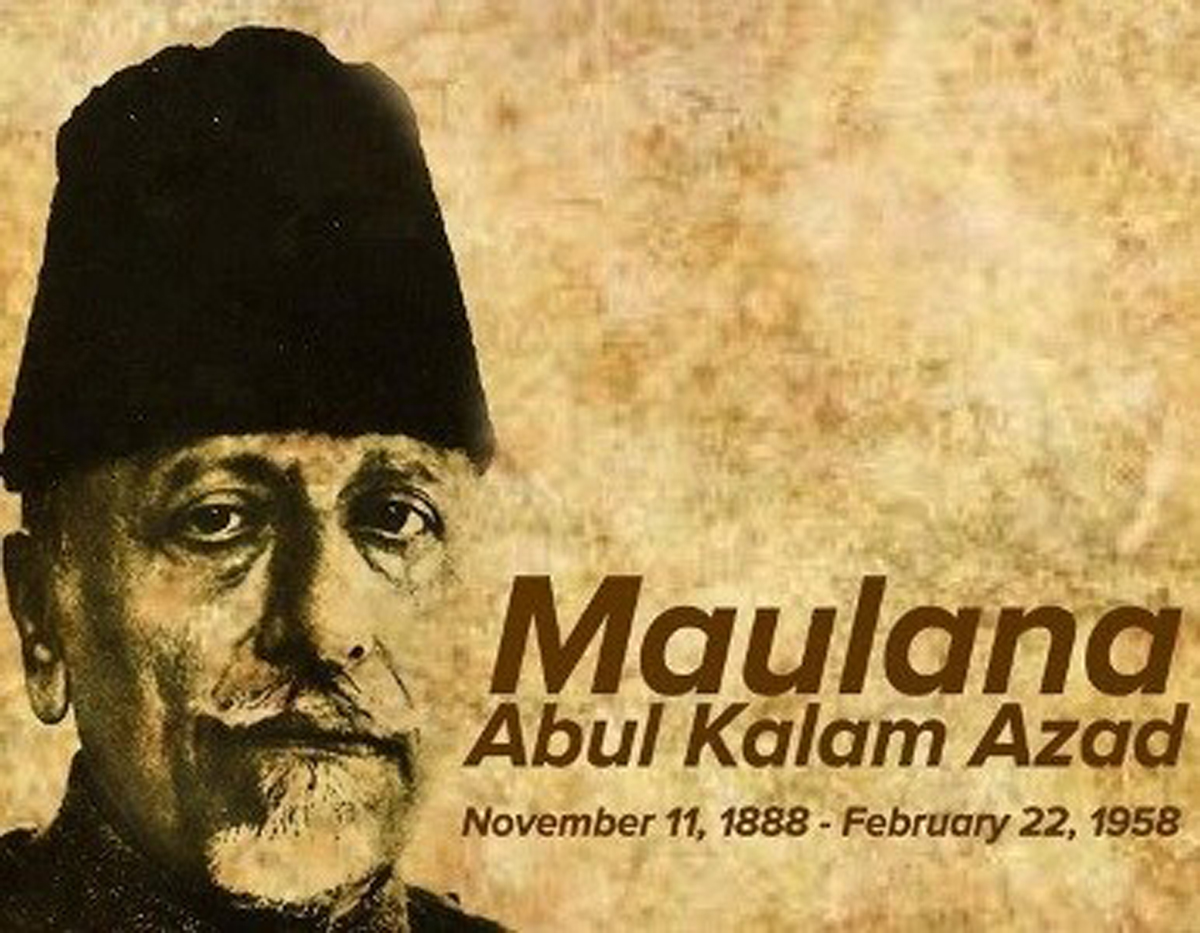- Born on 11 November 1888 and died on 22 February 1958.
- He was senior Muslim leader of Indian National Congress during Indian independence movement.
- He is commonly remembered as Maulana Azad (word Maulana is honorific meaning ‘Our Master’) and he had adopted Azad (Free) as his pen name.
- He was first Minister of Education of Independent India.
- He had played important role in foundation of Jamia Millia Islamia at Aligarh in Uttar Pradesh.
- He assisted in shifting campus of university from Aligarh to New Delhi in 1934.

Freedom Movement
- During his young age, he rose to prominence through his work as journalist, publishing works critical of British Raj and espousing causes of Indian nationalism.
- He became leader of Khilafat Movement, during which he came into close contact with Mahatma Gandhi.
- He later became enthusiastic supporter of Gandhi’s ideas of non-violent civil disobedience and worked to organise the non-co-operation movement in protest of the 1919 Rowlatt Act.
- He was committed to Gandhi’s ideals, including promoting Swadeshi (indigenous) products and cause of Swaraj (Self-rule) for India.
- In 1923, at age of 35, he became youngest person to serve as President of Indian National Congress.
- He was one of main organizers of the Dharasana Satyagraha in 1931 and emerged as one of the most important national leaders of the time, prominently leading causes of Hindu-Muslim unity as well as espousing secularism and socialism.
- He served as Congress president from 1940 to 1945, during which Quit India rebellion was launched.
- He also worked for Hindu-Muslim unity through the Al-Hilal newspaper.
Why in news?National Education Day of India is celebrated every year on 11 November to commemorate the birth anniversary of Maulana Abul Kalam Azad, the first education minister of independent India.